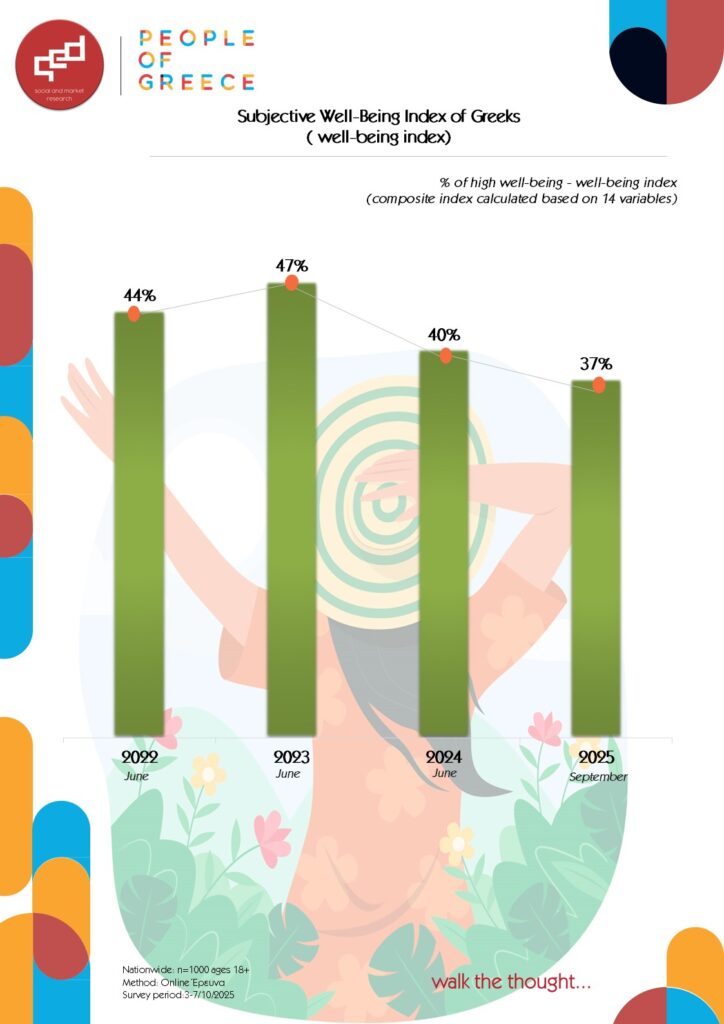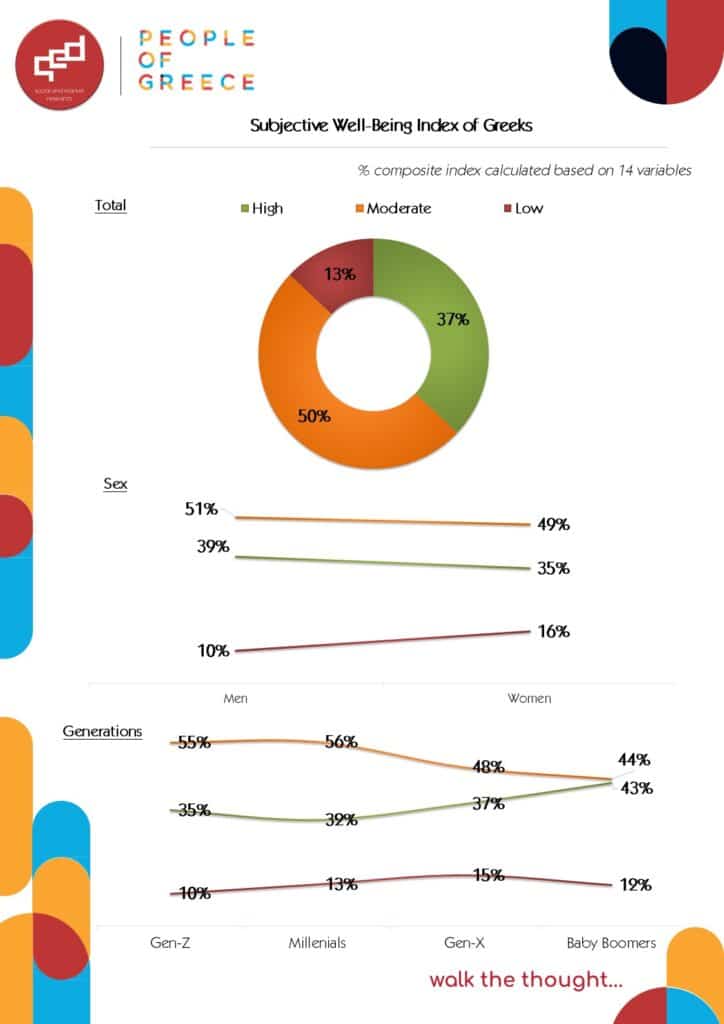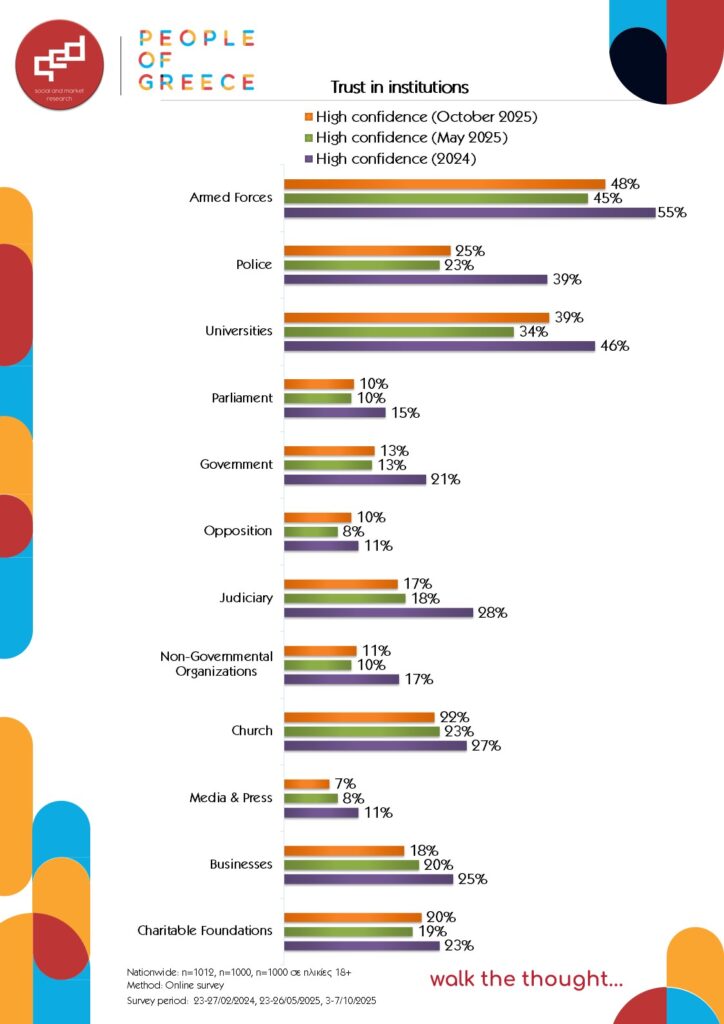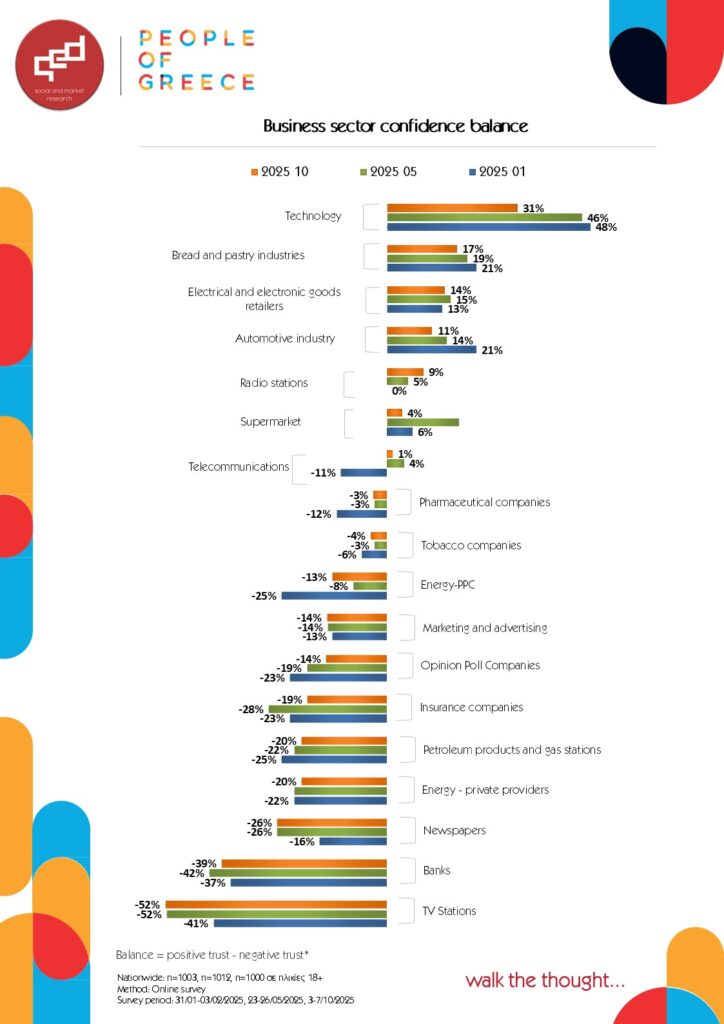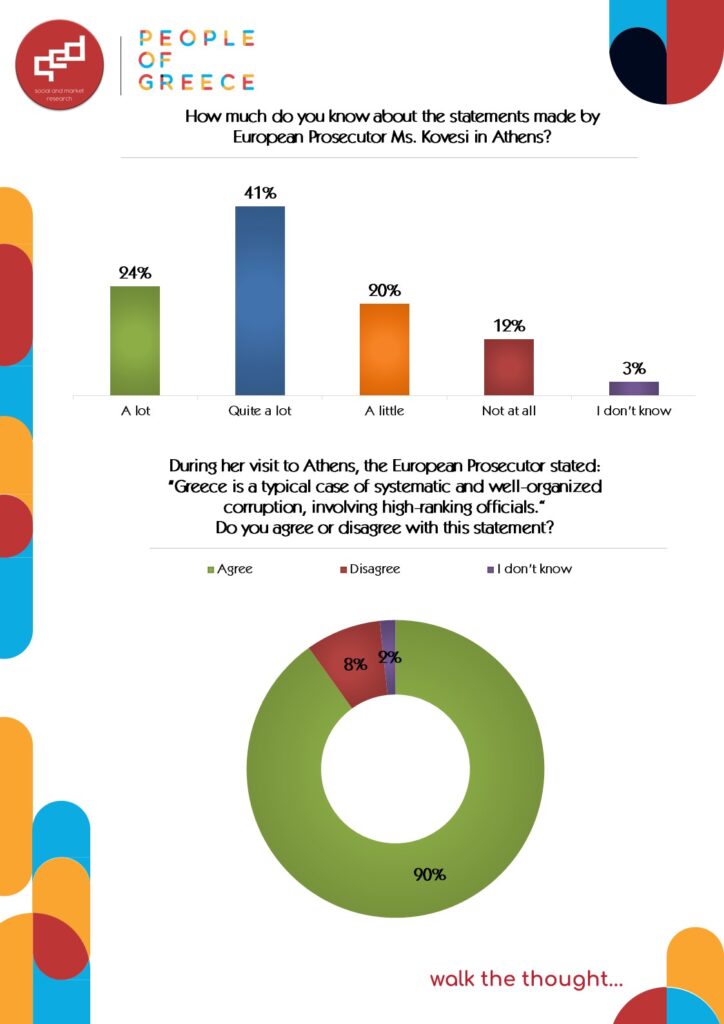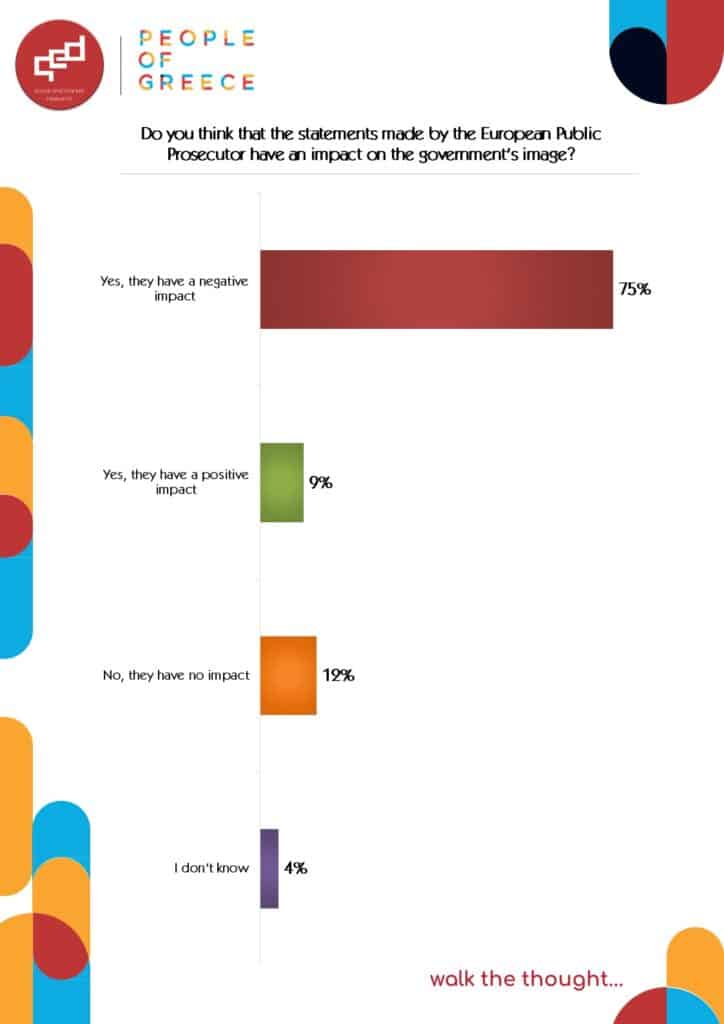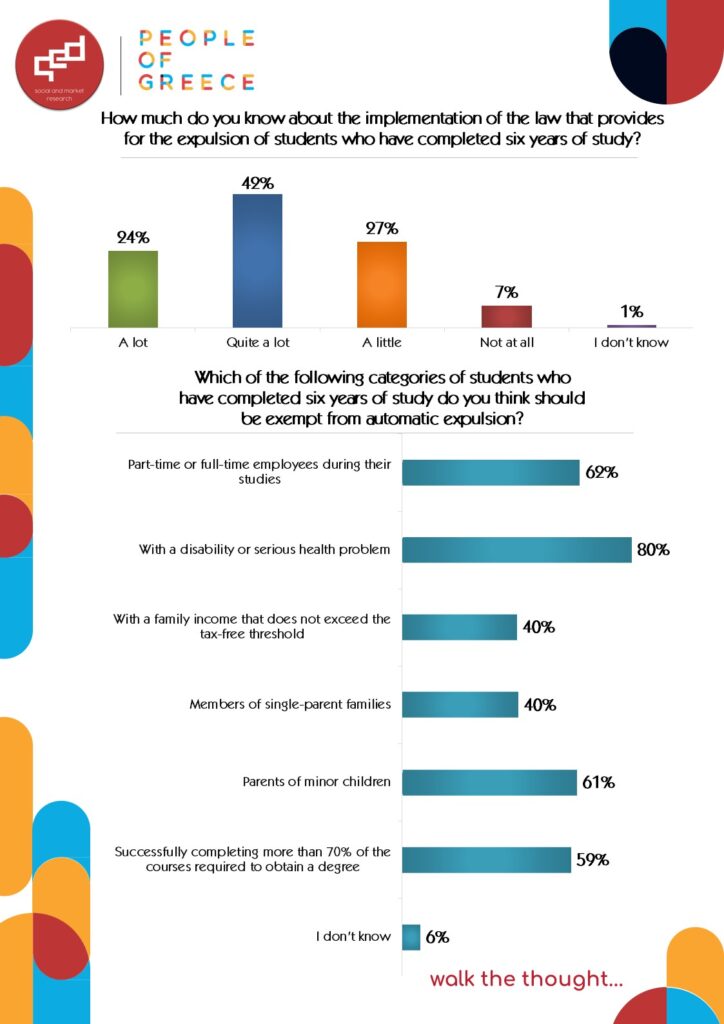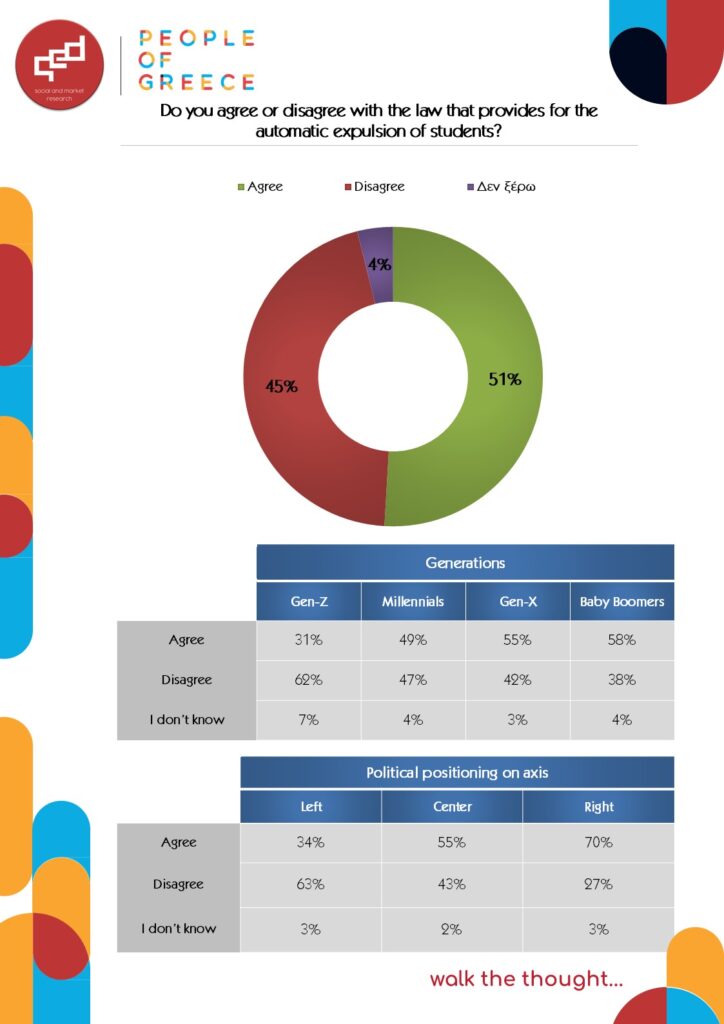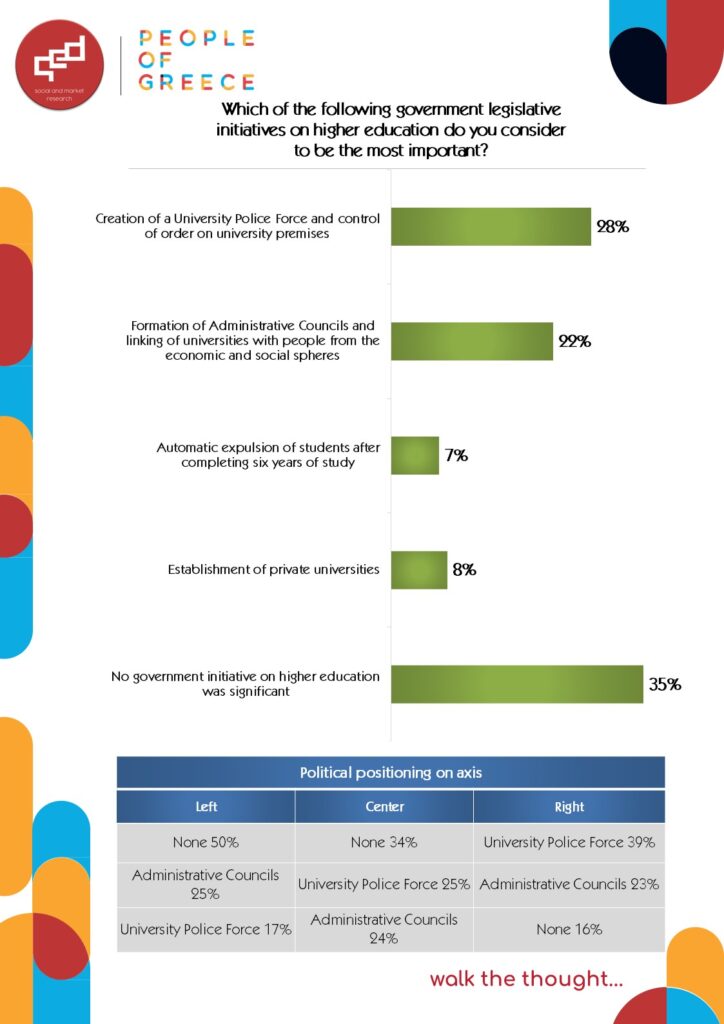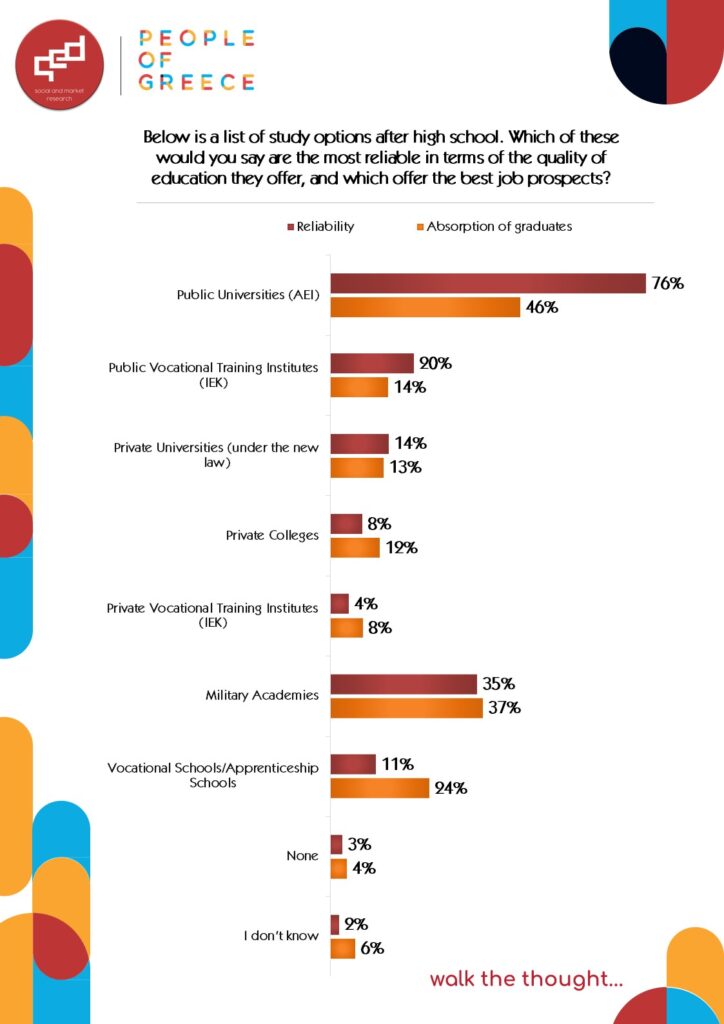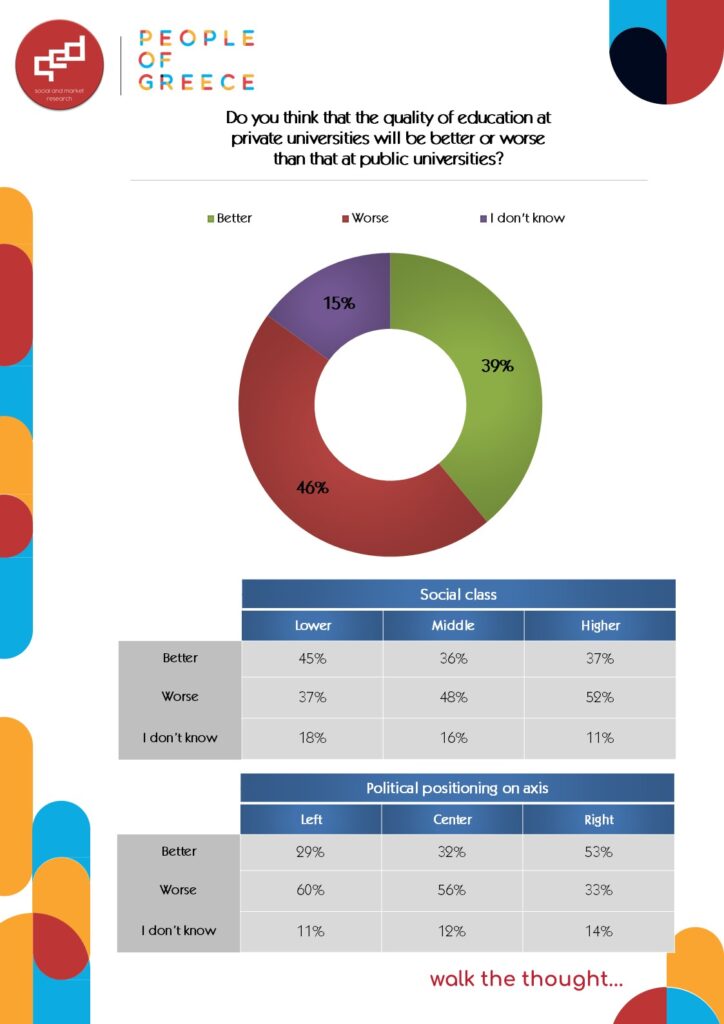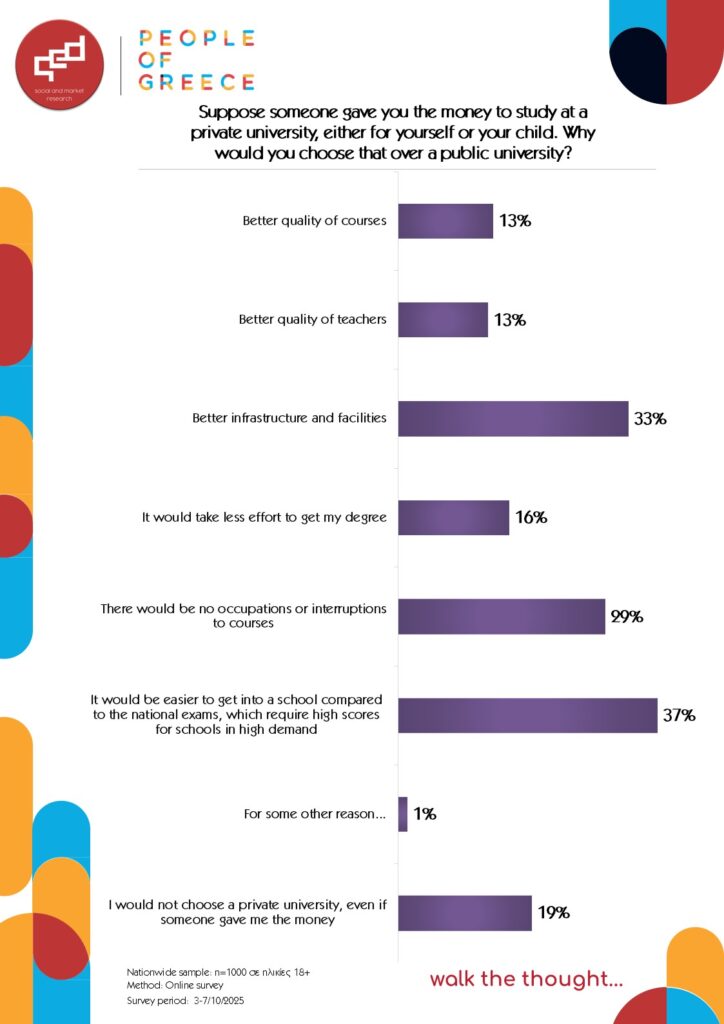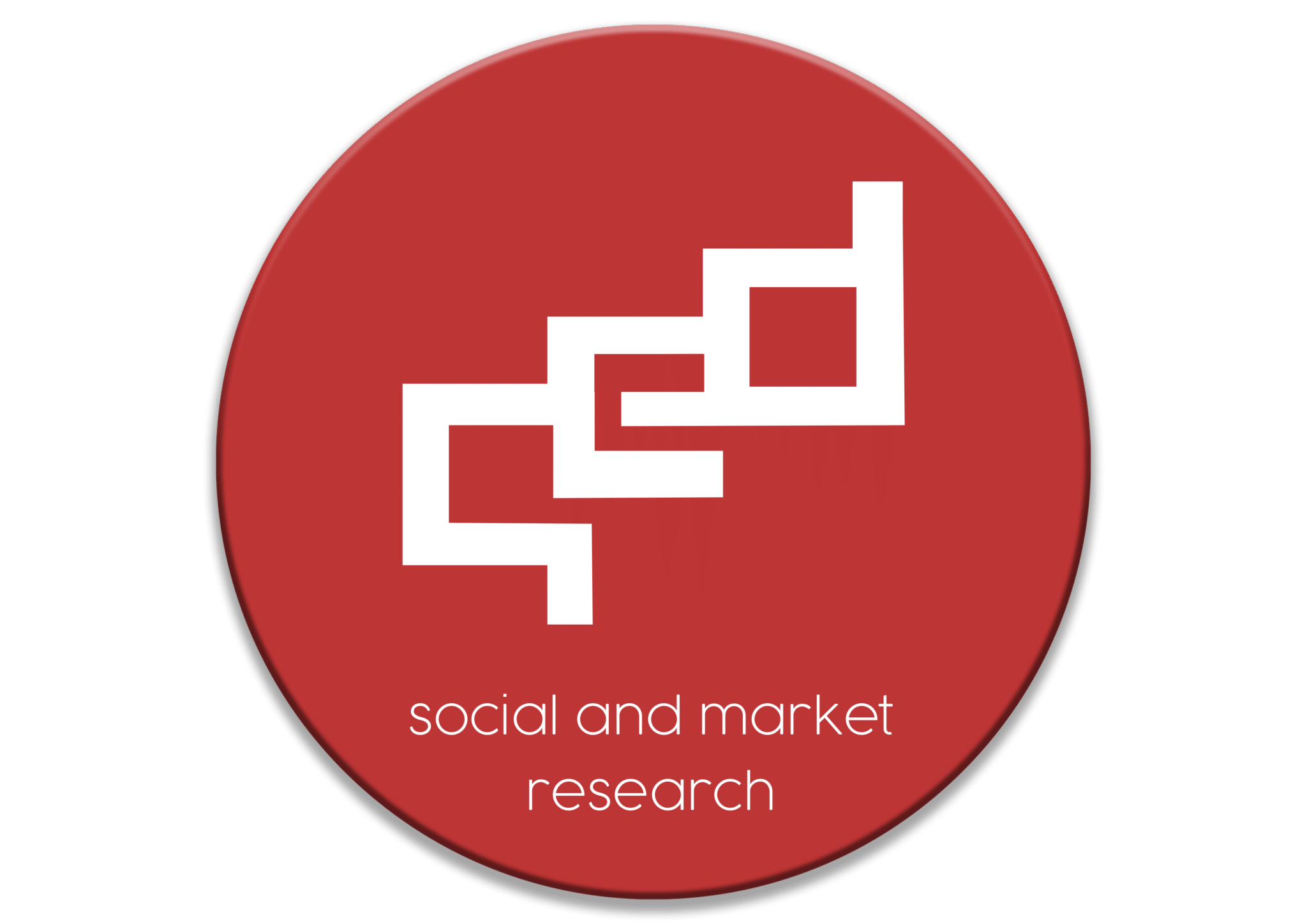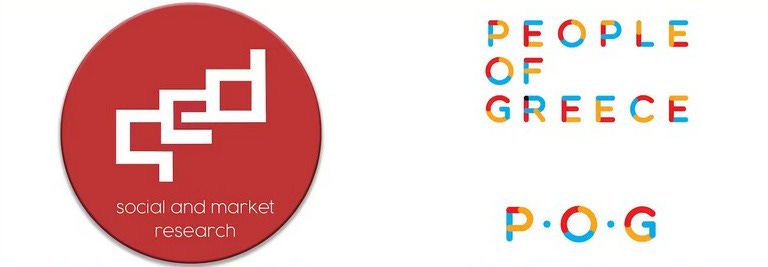
Events of the week 2/10-9/10:
This week, Greeks watched:
- the visit of the European Prosecutor to Greece and her statements on corruption and the functioning of justice,
- the start of the implementation of the law on the automatic expulsion of students who have completed six years of study
- the start of operation of private universities for the first time in the country.
On the sidelines of the above news, the People of Greece platform recorded the Subjective Well-Being Index of Greeks, the institutional trust indices, and the trust indices in business sectors.
What do we learn about Greece and the Greeks from this week’s findings?
- Greeks feel less happy, with the subjective well-being index having fallen dramatically (-20%) over the last two years. Women and young people, the groups that historically support social reproduction, feel worse than men and older people.
- Greeks do not feel that institutions function fairly or effectively. Institutional trust indices have fallen significantly over the past year, with the police and the justice system showing the sharpest decline (>30%). The only institutions with relatively higher trust indicators are the Armed Forces and Universities.
- Greeks are also losing confidence in business sectors, with the relevant indices showing a general decline, with the exception of energy and pharmaceuticals, for which the confidence balance remains negative. There has also been a significant decline in confidence in the technology sector, which nevertheless remains the sector with the most positive balance. However, this finding probably indicates a fatigue with the narrative of progress.
- Greek society is no longer surprised by revelations of corruption; it simply records them as a pathology. Nine out of ten Greeks agree with the view expressed by the European Prosecutor during her recent visit to Greece that there is well-organized corruption involving high-ranking officials. In general, the European Prosecutor’s statements received widespread publicity and had a negative impact on citizens’ perception of the government.
- The law on the automatic expulsion of students who have completed six years of study divides Greeks on ideological grounds. Disability and work are accepted as exceptions, but financial difficulties are not.
- The policies promoted by the government in the field of higher education are not considered important, with the marginal exception of the establishment of a university police force, which is accepted by right-wing voters but has been effectively withdrawn by the government.
- Public universities are considered more reliable than private higher education institutions, but many Greeks (40%) believe that private universities will offer better services. The appeal of private universities is linked to more practical issues, such as easier admission to high-demand schools and better infrastructure.
What did the research reveal?
